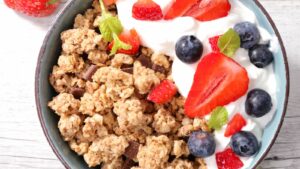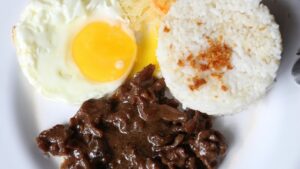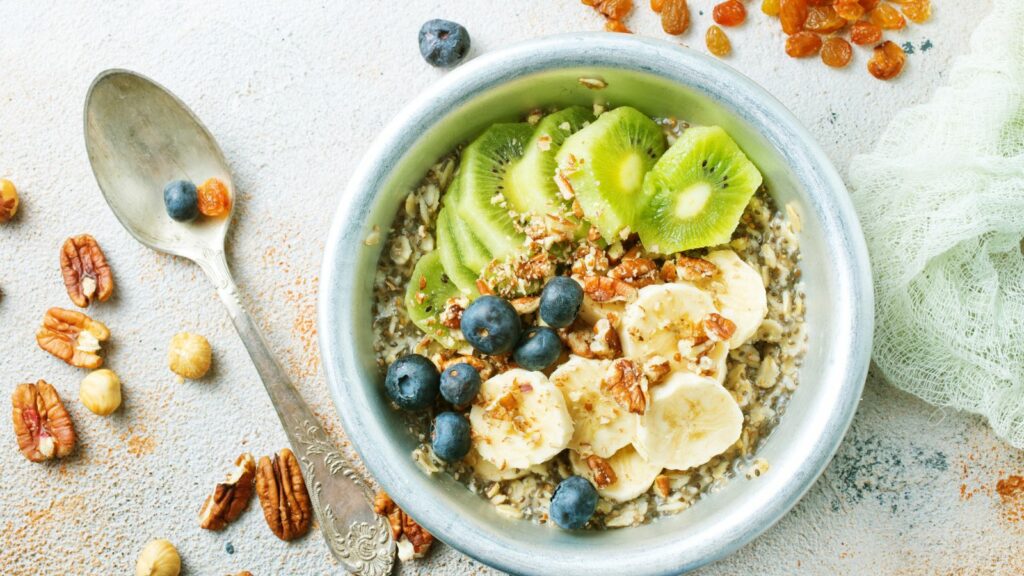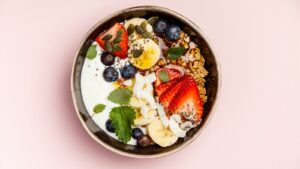Starting the day with the right breakfast can set the tone for hours of productivity and focus. While many might reach for a quick fix like sugary cereals or pastries, these choices often lead to energy crashes by mid-morning. Instead, energizing breakfast foods packed with nutrients can provide lasting vitality and keep sluggishness at bay.
Incorporating whole grains, lean proteins, and healthy fats into the morning routine can make a significant difference. Foods like oatmeal, eggs, and avocados not only satisfy hunger but also fuel the body and mind. These power-packed options help maintain steady energy levels, ensuring that both mental and physical performance are at their peak.
Energizing Breakfast Foods
Energizing breakfast foods provide sustained energy throughout the day. Unlike sugary cereals or pastries, items like whole grain breads and oatmeal release glucose slowly, maintaining blood sugar levels and avoiding energy spikes. Lean proteins, such as eggs and yogurt, support muscle repair and can increase satiety.

Consuming these foods in the morning enhances cognitive performance. Protein-rich foods aid neurotransmitter production for better concentration and alertness. Similarly, B vitamins present in whole grains assist in cognitive function and stress reduction by supporting nerve and brain health. Antioxidants in fruits, such as berries, reduce inflammation and protect brain cells.
Incorporating a variety of energizing breakfast foods improves overall health. Fiber from whole grains promotes digestive health, while proteins manage weight by increasing fullness. Healthy fats support cardiovascular health by improving cholesterol levels. These nutritional benefits make energizing breakfast choices a cornerstone for maintaining a healthy lifestyle.
Leading Energizing Breakfast Foods
Incorporating energizing foods into breakfast can keep energy levels stable throughout the day. The following options are both nutritious and delicious.

Oatmeal provides complex carbohydrates for sustained energy. It’s rich in fiber, particularly beta-glucan, which aids in digestion and prolongs feelings of fullness. Adding fruits like berries or bananas boosts vitamins and antioxidants, enhancing overall health. Greek yogurt is high in protein, supporting muscle repair and offering satiety. It’s loaded with probiotics that promote gut health. Pairing it with berries adds natural sweetness and antioxidants like vitamin C, helping reduce inflammation.
How To Incorporate Energizing Foods Into Your Routine
Integrating energizing foods into a daily routine involves planning and simplicity, ensuring that each breakfast contributes to lasting energy. Prepare to embrace meal prep and quick recipes for an efficient start.
Meal Prepping Tips
Plan meals in advance to maintain a nutritious breakfast routine. Batch cook oatmeal or quinoa and store it in the refrigerator for quick reheating. Pre-cut fruits like berries, apples, or bananas and keep them in separate containers for easy mix-and-match options. Assemble Greek yogurt parfaits with oats and nuts the night before for a convenient grab-and-go breakfast.
Create nutritious breakfasts swiftly with simple recipes. Combine overnight oats with oats, chia seeds, almond milk, and your choice of fruit. For a savory option, spread avocado on whole grain toast, top with a poached egg, and sprinkle with chili flakes. Blend a smoothie using spinach, banana, almond butter, and a splash of milk for an energy boost. Make a simple Greek yogurt bowl topped with honey, almonds, and fresh fruit. Scramble eggs in olive oil and mix in spinach or bell peppers for a nourishing breakfast in minutes.
Potential Downsides To Consider
While energizing breakfast foods offer numerous benefits, some potential downsides exist. Overconsumption of certain foods like avocados and nuts can lead to excessive calorie intake due to their high-fat content. This can counteract efforts to maintain a balanced diet and manage weight if portion control is not practiced.
Some individuals might experience digestive discomfort from abrupt increases in fiber intake found in whole grains and fruits. Gradually introducing these foods into the diet helps minimize potential issues such as bloating or gas.
Greek yogurt and other dairy-based products may cause concerns for those with lactose intolerance. Selecting lactose-free or plant-based alternatives offers similar nutritional benefits without adverse effects.
Those sensitive to caffeine should be cautious when integrating foods like matcha-infused breakfast items. Elevated caffeine levels can lead to restlessness or increased heart rate, impacting overall well-being. Adjusting consumption based on individual tolerance helps mitigate these issues.


